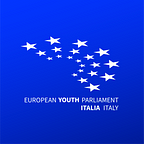Europe’s defining moment
An overview of the proposal for a Recovery Plan by the European Commission
The European Commission has come up with a proposal aimed at creating growth opportunities in the years following the economic crisis originated by the coronavirus pandemic: the two-fold investment programme, when approved, will support European economies through new financing and a reinforcement of the EU 2021–27 budget.
What is it?
The recovery package “Next Generation EU” consists of two separate financial instruments: 500 billion euros of grants and 250 billion euros of loans.
How did it originate?
The Commission’s proposal originated and evolved from a Franco-German proposal put forward in a joint press conference between the French President Emmanuel Macron and the German Chancellor Angela Merkel: the two leaders agreed to propose a joint programme that would have allowed (if not replaced by the Commission’s proposal) to raise 500 billion euros both of grants and loans on financial markets. This compromise was originated by countries such as Italy and Spain who were most hit by the economic consequences of the coronavirus outbreak and favored a recovery plan substantially made up of grants. This is not however how every EU country views the matter.
Opposition
The “Frugal Four” are a group of four countries who oppose the idea of granting EU funds to fellow member states, as they would rather exports loans on a preferred credit line; Austria, Denmark, Sweden and the Netherlands have opposed the Franco-German agreement as it was being publicly unveiled and have now criticized the Commission’s proposal through their spokesman, the Austrian chancellor Sebastian Kurz. The frugal four (and Finland) are advocating for a “loan for loan” policy and are against a mutualisation of the European sovereign debt.
How will it work?
The proposal of the European Commission, called Next Generation EU, is embedded within the revamped Multiannual Financial Framework (MFF), which is the long-term budget of the EU from 2021 to 2027. So, aside from the standard budget usually allocated, the Recovery Plan will also be put in place. The €750 billion Next Generation brings the total financial firepower of the EU to €1.85 trillion, including the MFF and the emergency funds put in place during the crisis, such as SURE. The €750 billion will be borrowed by the Commission, through the issuance of bonds on behalf of the Union for the period 2021–2024, so as to provide a strong support to Member States, without putting additional pressure on national budgets. The proposal aims at distributing money through grants, €500 billion that will not need to be returned; and loans for €250 billion that will need to be returned by Member States to the EU. Each country will need to lay down a national plan for investments to pursue the goals of this measure.
Next Generation EU will be rolled out in three pillars, under the umbrella idea of a “Green, Digital and Resilient Europe”.
The first pillar concerns Support to Member States to recover and boost up, through several frameworks, countries’ investments and reforms for a sustainable recovery, including cohesion policies, agriculture, small-medium enterprises (SMEs) and energy policies. Moreover, the second pillar aims at kickstarting economy and helping private investment, through diverse instruments that will support the private sector in the most affected areas, so as to level up the playing field when State aid cannot be provided. To learn lessons from the crisis, the third pillar will strengthen Health Systems, emergency response and foster global cooperation with strategic partners.
The Green Deal and the digital transition are essential elements found in all measures, that aim collectively at favouring and fostering a sustainable and digital recovery, so as to transform this crisis in a moment of growth and progress. The proposal also calls for a more flexible EU budget to put in place a coordinated response to crises, and forecasts the possibility to introduce further measures in the near future.
The European Commission stressed that the Recovery must be based on EU fundamental rights and rule of law: the threats posed by the crisis on rule of law and democracy will be analysed closely and tackled, so as to rebuild the Union accordingly.
Perspective and future
The goal would be to kickstart the funding in January 2021; the Commission presented a timeline for the approval of the proposals, with the Recovery Plan and the Multiannual Financial Framework being discussed by the European Council (meeting of the 27 Heads of State) on 19th June and ideally agreed upon by July. Since the European Council will need to approve unanimously the plan, negotiations and agreements will play a key role in quickening the implementation. The European Parliament and the Council of the EU will then approve the agreement by autumn 2020, allowing its entry into force.
To conclude, the road is still long and winding, but the proposal marks a historic cornerstone for the largest common plan ever presented in the European Union. This crisis needs be a turning point for Europe as a whole, and as the Commission has stated
“This is Europe’s moment. Our willingness to act must live up to the challenges we are facing. National efforts alone will not be enough — Europe is in a unique position to be able to invest in a collective recovery and a better future for next generations”.
Europe’s recovery will depend on the willingness to share and cooperate in devising a fair, equal and just plan to strengthen all EU Member States; that is not easy, and cannot be done alone. Political and social courage are necessary now more than ever to create a common good for our shared future.
by Michele Rivetti and Enrico Zonta
